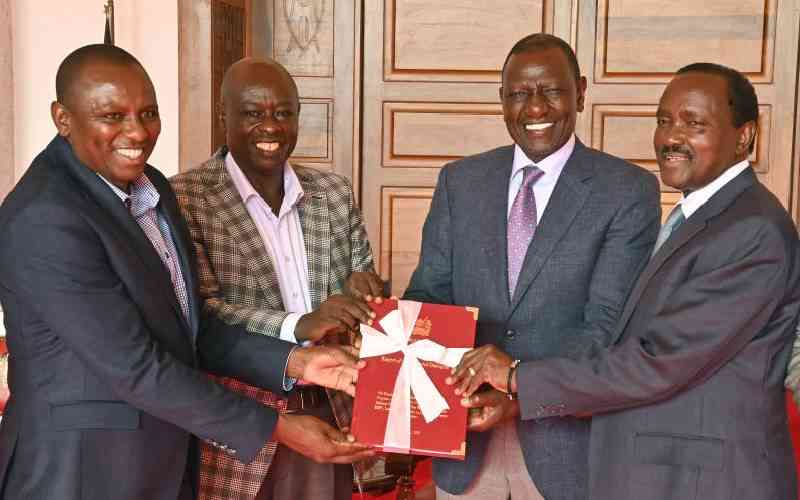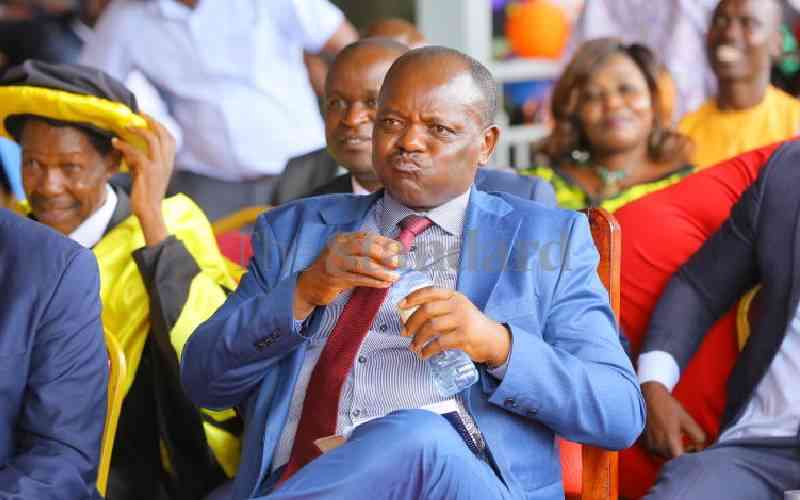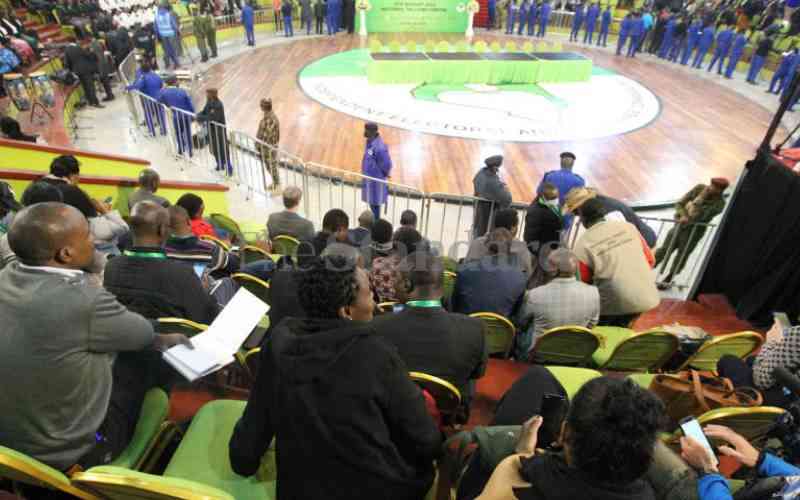NAIROBI: The Okoa Kenya movement finally submitted their constitutional amendment Bill to the IEBC this week for signature verification. From the time the process began, this is by far the most significant event in the process. We now have a formal Bill, we have a list of the “supporters” of the Bill and the timelines for the management of the amendment process has officially begun.
Being the first “amendment by popular initiative” since the enactment of the Constitution, how it is handled will define to a large measure how future processes of this nature will be dealt with.
It is unfortunate that the Bill has reached this far before we have resolved major procedural issues that may yet complicate the conclusion of the process, but now that the train has left the station, it may well be these processes will be resolved on an ad hoc basis as we trudge along.
My interest in today’s piece is on the content of the draft. I must admit that compared to its predecessors, the Bill presented to IEBC is a substantial improvement. It is clear that some significant panel beating was carried out on the Bill to clear it of some of the more unfortunate proposals.
Surprisingly, provisions relating to CDF have been removed and positively proposals for County government involvement in security matters are now more consistent with the spirit of the Constitution. That said, most substantive provisions that informed initial clamour for the Bill have been retained though redrafted to make them more coherent.
I would group the Bill’s proposals into three broad groups. The first groups are those provisions that undoubtedly improve the Constitution. These include many of the provisions relating to the electoral process, registration of citizens and the role of the Senate vis a vis that of the National Assembly matters and those that fill existing gaps for example those relating to Deputy County Governors.
One would have hoped that these proposals were presented in a bipartisan manner so that it was not necessary to birth them through a contentious process. Furthermore I believe that some of these proposals, especially those relating to procedural aspects of the electoral process, should have been resolved through statute as opposed to entrenching them in the Constitution.
A second lot of provisions are those whose impact is to make the Constitution messier. These include proposals to increase the minimum allocation to counties to 45 per cent of previous years revenue. If that provision was law, this year’s allocation would have been about Sh450 billion. This may appear progressive but anyone who has studied our revenue and expenditure realities knows that it is impossible to effect this without massive fiscal instability that may ultimately harm devolution. Another worrying provision vests forests, minerals in national and county governments and guarantees County governments 15 per cent of revenue from natural resources in their area. Again this may appear progressive but the impact is counter-productive. A thorough analysis of the implications of these provisions with comparative studies of others who have walked this route will be useful. The clause that requires that 30 per cent of all public appointments in all state organs be reserved for marginalised communities may appear benign but will undoubtedly create more challenges than they propose to resolve.
Interestingly the marginalised are defined as racial or ethnic community with less than 3 per cent of the population, which makes the Asian and European communities in Kenya marginalised along with the Ogiek!
The third group comprises just one clause; the constitutionalisation of the Ward Development Fund. The cynic in me believes this is a sweetener meant for MCAs who are the most important constituency in determining whether the Bill sees the light of day since at least 24 counties must support it for it not to be lost.
It will be interesting to see how MCAs in Jubilee zones balance their political against their personal interests! All in all the Bill presents a good opportunity for us to discuss the review of our Constitution and the best timing thereof. Unfortunately, like times of war, the first casualty in this process will be the truth; expect no informed discourse but brickbats on this one.
 The Standard Group Plc is a
multi-media organization with investments in media platforms spanning newspaper
print operations, television, radio broadcasting, digital and online services. The
Standard Group is recognized as a leading multi-media house in Kenya with a key
influence in matters of national and international interest.
The Standard Group Plc is a
multi-media organization with investments in media platforms spanning newspaper
print operations, television, radio broadcasting, digital and online services. The
Standard Group is recognized as a leading multi-media house in Kenya with a key
influence in matters of national and international interest.
 The Standard Group Plc is a
multi-media organization with investments in media platforms spanning newspaper
print operations, television, radio broadcasting, digital and online services. The
Standard Group is recognized as a leading multi-media house in Kenya with a key
influence in matters of national and international interest.
The Standard Group Plc is a
multi-media organization with investments in media platforms spanning newspaper
print operations, television, radio broadcasting, digital and online services. The
Standard Group is recognized as a leading multi-media house in Kenya with a key
influence in matters of national and international interest.









